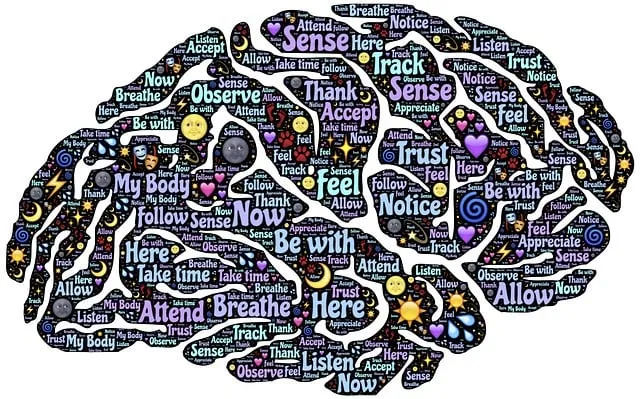Greenwood Village Kaiser Permanente psychiatry leads mental health advocacy with grassroots initiatives, breaking stigma and enhancing care access. Their integrated model combines awareness campaigns, community engagement, and professional guidance, empowering residents through holistic programs like Cultural Sensitivity and Social Skills Training. Telemedicine integration overcomes rural barriers, while KPI assessments ensure success and burnout prevention for healthcare providers, transforming mental wellness in Greenwood Village and beyond.
Mental health advocacy initiatives play a crucial role in fostering inclusive communities and ensuring equitable access to healthcare. This article explores various facets of mental health activism, focusing on community-driven strategies and their impact. We delve into successful models like Greenwood Village Kaiser Permanente Psychiatry, showcasing integrated care approaches.
Key topics covered include effective advocacy techniques, overcoming barriers in rural areas, and measuring the success of programs, all essential for creating a supportive environment for mental well-being.
- Understanding Mental Health Advocacy: The Role of Community Initiatives
- Greenwood Village Kaiser Permanente Psychiatry: A Model for Integrated Care
- Strategies for Effective Mental Health Advocacy: Engaging Local Communities
- Overcoming Barriers: Accessing Mental Healthcare in Rural Areas (Focus on Greenwood Village)
- Measuring Impact: Evaluating the Success of Mental Health Advocacy Programs
Understanding Mental Health Advocacy: The Role of Community Initiatives

Mental Health advocacy initiatives play a pivotal role in shaping communities and improving access to quality care. In Greenwood Village, Kaiser Permanente psychiatry has been at the forefront of these efforts. Beyond clinical services, community-driven advocacy focuses on raising awareness, breaking down stigma, and promoting early intervention. These grassroots movements are essential for fostering an environment where individuals feel empowered to seek support without fear of judgment.
Community initiatives like Cultural Sensitivity in Mental Healthcare Practice and Social Skills Training cater to diverse populations, ensuring that mental health services are inclusive and tailored to unique cultural needs. For instance, a well-designed Community Outreach Program Implementation can reach underserved groups, offer educational resources, and connect them with appropriate treatment options. By fostering partnerships and engaging the community, these efforts contribute to a holistic approach to mental wellness, ultimately enhancing the overall well-being of residents in Greenwood Village and beyond.
Greenwood Village Kaiser Permanente Psychiatry: A Model for Integrated Care

Greenwood Village Kaiser Permanente Psychiatry stands as a beacon of mental health advocacy initiatives, showcasing an integrated care model that has garnered significant attention in the healthcare industry. This innovative approach seamlessly integrates mental health services into primary care settings, ensuring that patients receive holistic treatment for both physical and psychological needs. By eliminating the barriers between mental and physical health, this initiative significantly contributes to enhancing mental health awareness and accessibility.
The program’s success lies in its comprehensive strategy, where psychiatrists work collaboratively with primary care providers, fostering an environment of shared responsibility for patient well-being. This collaboration extends to engaging the community through public awareness campaigns development, mental health policy analysis and advocacy, and education programs. As a result, Greenwood Village Kaiser Permanente has not only improved patient outcomes but also fostered a more supportive and understanding society, where mental health is prioritized alongside physical health.
Strategies for Effective Mental Health Advocacy: Engaging Local Communities

In Greenwood Village, Kaiser Permanente psychiatry services play a pivotal role in fostering mental health advocacy within local communities. Effective advocacy strategies involve engaging residents directly, raising awareness about mental wellness, and breaking down barriers to care. One powerful approach is through community events that promote open conversations on emotional healing processes, encouraging individuals to share their experiences and learn from one another. These initiatives can take the form of support groups, workshops, or even simple gatherings where people can connect over shared interests while subtly discussing mental health challenges and solutions.
Integrating self-care routine development for better mental health is another key element. Encouraging journaling exercises that guide individuals through their thoughts and feelings can be a therapeutic practice, helping them track progress and identify triggers. By combining these activities with professional psychiatric guidance, the community in Greenwood Village can collectively embrace emotional well-being, fostering an environment where everyone feels empowered to prioritize their mental wellness, much like a supportive tapestry woven by dedicated advocates.
Overcoming Barriers: Accessing Mental Healthcare in Rural Areas (Focus on Greenwood Village)

In Greenwood Village, access to mental healthcare has long been a pressing issue, especially for those residing in rural areas. The isolation and limited resources often act as significant barriers to seeking treatment, exacerbating the challenges already faced by individuals grappling with mental illness. However, initiatives led by organizations like Kaiser Permanente have started to make inroads. Through partnerships with local communities and innovative programs, these efforts aim to bridge the gap between those needing support and the available services.
One notable strategy is the integration of telemedicine, which enables patients in remote areas to access psychiatric care from the comfort of their homes. This approach not only overcomes geographical constraints but also reduces the stigma often associated with mental illness by normalizing access to treatment. Additionally, Mental Health Awareness campaigns, coupled with Mental Illness Stigma Reduction Efforts, play a pivotal role in fostering an environment where individuals feel empowered to speak up and seek help without fear of judgment. These initiatives hold promise for improving the emotional healing processes within Greenwood Village and similar rural communities.
Measuring Impact: Evaluating the Success of Mental Health Advocacy Programs

Evaluating the success of mental health advocacy programs is crucial to understanding their impact and identifying areas for improvement. Organizations like Greenwood Village Kaiser Permanente psychiatry have pioneered innovative approaches, aiming to enhance patient outcomes and overall well-being. Measuring impact involves a multifaceted approach, including quantitative data analysis and qualitative feedback from both patients and healthcare providers.
By tracking key performance indicators (KPIs) such as reduced wait times, increased access to care, and improved emotional regulation through self-care practices, these programs can demonstrate their effectiveness. Additionally, incorporating Burnout Prevention Strategies for Healthcare Providers into the evaluation framework ensures that advocates not only support patients but also foster sustainable emotional well-being among medical professionals. This holistic assessment method allows for a comprehensive understanding of the program’s success and informs future strategies in mental health advocacy initiatives.
Mental health advocacy initiatives, as exemplified by the successful model of Greenwood Village Kaiser Permanente psychiatry, play a pivotal role in fostering community engagement and improving access to care. By integrating mental health services into primary care settings and leveraging local community resources, these initiatives significantly enhance the well-being of individuals in both urban and rural areas. Measuring the impact of such programs is crucial for further refining strategies, ensuring sustainability, and ultimately revolutionizing mental healthcare accessibility worldwide.






